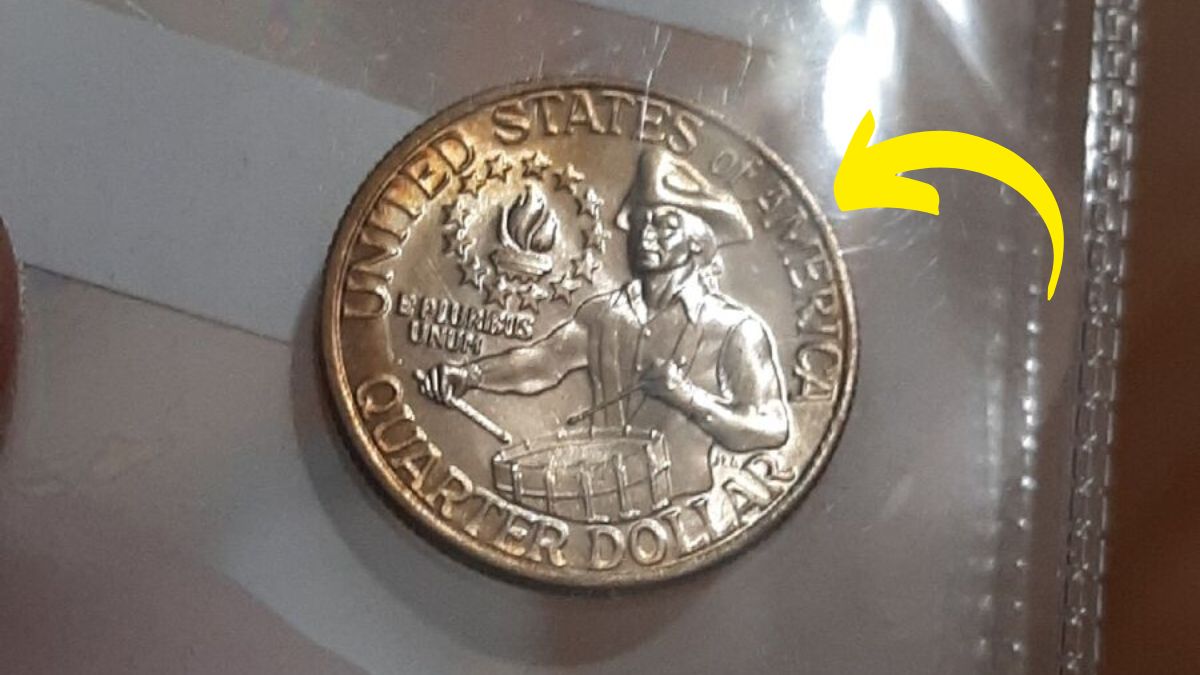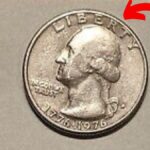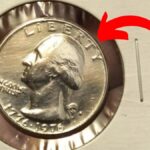The Bicentennial Quarter, released in 1976, is a special coin that celebrates the 200th anniversary of American independence. It stands out because of its unique design and dual date, “1776–1976.” While millions of these coins were produced, a few rare ones are now worth up to $100,000. These special quarters have become a dream find for coin collectors and history lovers.
What Makes the Bicentennial Quarter Special?
Most quarters made in 1976 were for general use, but some special features make a few of them very valuable:
Silver Content: While regular Bicentennial Quarters were made of copper-nickel, some were made with 40% silver. These silver versions are rarer and more desirable.
Proof and Error Coins: Proof coins are made with a shiny finish and are usually sold to collectors. Error coins, like those with minting mistakes, are also very valuable.
High-Grade Condition: Coins that are in excellent condition—also called “uncirculated” or “MS-68 grade and higher”—are much more valuable to collectors.
How to Identify a Rare Bicentennial Quarter
To find out if your Bicentennial Quarter is valuable, check these important features:
Mint Mark: Look for a small letter on the coin.
“S” = San Francisco mint, often used for silver and proof coins.
“D” = Denver mint, more common.
No letter = Philadelphia mint, also common.
Weight: Use a scale. Silver quarters weigh about 5.75 grams, while copper-nickel ones weigh around 5.67 grams.
Condition: Coins with sharp designs and no visible damage are worth more. Use a magnifying glass to inspect your coin.
Errors: Look for mistakes like double images (double die), misaligned strikes, or missing details.
The $100,000 Bicentennial Quarter
The rarest of these quarters are in near-perfect condition and have been professionally graded. One such coin, graded MS-68, was sold for $100,000 at an auction. The high price came from its rare condition, silver content, and collector demand. Most coins are not worth this much, but even lower-grade rare versions can fetch hundreds or thousands of dollars.
Why Are These Coins Still in Circulation?
Even though they can be valuable, some Bicentennial Quarters are still found in everyday use. Many people do not realize their worth and spend them as normal change. This means you could find a valuable coin in your pocket, at the store, or in coin rolls from a bank.
Tips for Finding a Rare Bicentennial Quarter
If you want to search for one of these rare coins, here are some simple ways to start:
Check Your Change: Always look at the dates on quarters you receive.
Visit Local Banks: Ask for rolls of quarters and sort through them at home.
Use a Metal Detector: Parks, beaches, and old playgrounds may have lost coins.
Join Collector Groups: Online forums or local coin clubs can help you learn from others and trade coins.
How to Take Care of a Valuable Quarter
If you find a Bicentennial Quarter that looks rare:
Do Not Clean It: Cleaning can damage the coin and lower its value.
Store It Safely: Use a coin holder or airtight plastic case to prevent scratches.
Get It Graded: Professional grading by companies like PCGS or NGC can confirm the coin’s value.
Sell Carefully: Use trusted auction houses, certified dealers, or websites like eBay to find real buyers.
Conclusion
The Bicentennial Quarter is not just a piece of metal—it’s a piece of American history. While most of these coins are only worth 25 cents, a few rare ones can be worth thousands of dollars, even up to $100,000. By learning what to look for, you might discover a hidden treasure in your pocket. So next time you get change, take a second look—you could be holding a small fortune!
Disclaimer: The value of coins mentioned in this article is based on market trends and collector interest, and is not guaranteed. Always consult a professional appraiser for accurate valuation.









